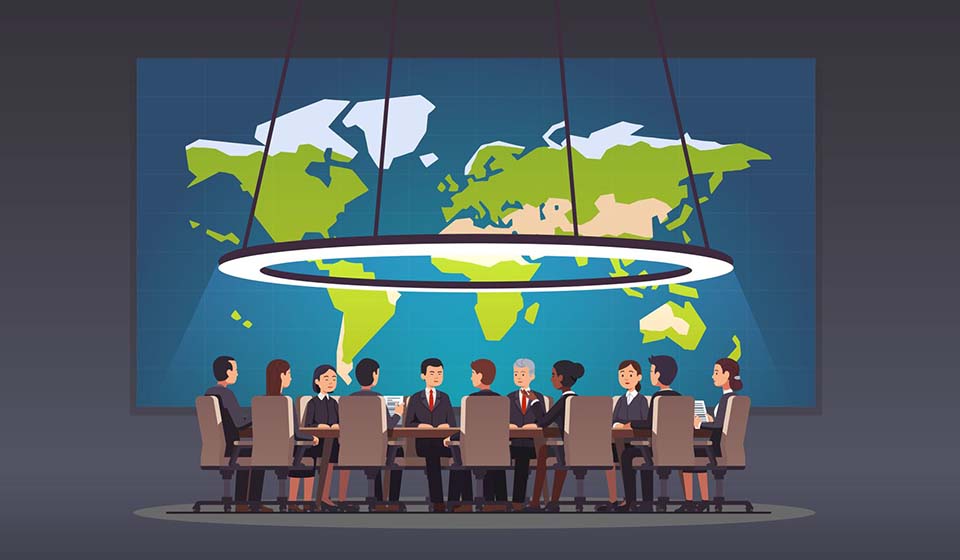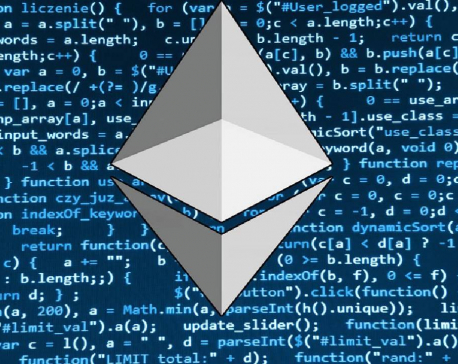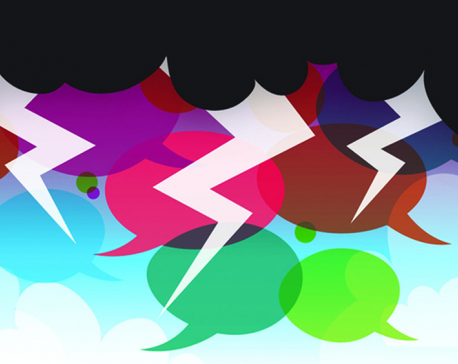
OR
#OPINION

There was a time when politics was taken as a field of study with deep interest and politicians were given due respect because of their conviction, dedication, and service to society. Leaders were taken as the harbinger of change and acclaimed. But today, the scenario has dramatically taken a U-turn where politicians are taken as scoundrels, and thieves of the treasury because of their changed role and contribution to society with a bad name. Political thinkers earlier philosophized the society, nation, and individuals with their distinct characters and role in the making. Society's advancement as it is today is the result of political thinkers' contribution to making a civilized and prosperous world governed by consciousness and ideologies.
In retrospect, it is the sum of human desire for a better and civilized society with their continued exploration, innovation, and revolution that brought change toward the new vigor, and dynamism of the human condition. Occasionally, the twists and turns as a social phenomenon occurred disrupting the smooth transition of the society.
Beginning from the Athenian democracy, parliamentary democracy, and participatory democracy, to the Republican order, the society has transformed and moved ahead with tangible change in society and governance. The emergence of different political ideologies and their execution in different orders has presented society as seemingly different in level of social advancement.
Realism as practiced after World War II and the establishment of the United Nations in 1945, brought up a sea change in global political landmarks. Ideology, integrity, and ethics were the main hallmark of politics and policies of governance. However the global powers were divided into two blocks under the ideological dictum of capitalism and socialism. There was a craze for changing society, with the national interest at the core. Dozens of nations led by their supreme leader groomed with ideological beliefs and philosophies liberated people from colonial powers and achieved independence. Most of the democracies slid back under different pretexts and were mostly ruled under the dictatorial form mostly in sub-Saharan Africa, Latin America, and Asian countries.
Today we are observing a fourth wave of democracy underway. The other three waves, which we already passed were the first creation of democratic republics in Western Europe at the end of the First World War, the second democratic wave in the post-Second World War era in the 60s and 70s, and the third, the democratization of Eastern Europe in the early 1990s. The socialist bloc led by the Soviet Union fizzled out in the 1990s and has no traces of its legacy except a very few isolated instances of DPRK, China, and Cuba.
Despite meeting the expectations of the people for a better world to live in a democratically governed nation ensuring fundamental human rights and improved living conditions, with the herald of the twenty-first century, countries from Russia to Turkey to Venezuela have slid back into ‘electoral authoritarianism.’ Recently, the election in Cambodia is a mockery of democracy, where the election’s credibility was put in question in the absence of opposition contesting the election.
However, the West epitomizes democracy as its ideological baseline and preaches for its sustainability, democracy itself sees sliding back in many countries even in the countries that are claimed as democratic - the United States and India. The election of Donald Trump as president and an irresponsible statement after his defeat in the election against Joe Biden at his supporter's anarchism on Capitol Hill is an example of rising extremism in the name of nationalism. India, as it claims to be the largest democracy in the world, has many illusory reports of human rights violations and trampling over the rights of the minority.
However, the decades after the 1980s were marked by the ‘politics of conviction,’ decaying thereafter when the world went through financial crisis, power struggles and skirmishes of war-like events, revolutions such as rainbow revolution, color revolution, and pandemic upheavals. The world has been polarized today based on national interests and geopolitical power equilibrium more than the decades earlier when governance was dictated by political philosophy. In third-world countries, it is not the national interest, but the partition interest of the political leaders that rule the roost. The color revolutions could not bring any changes in authoritarian countries during the first decade of the 21st century. Democracy, equality, solidarity, and prosperity are admirable things. But in each case, we face a political trap, triggered by vested interests.
In the international geopolitical arena, maintaining power equilibrium plays a vital role than supporting and following principle-based politics where the phenomena “democracy supports democracy” comes into question. Ideological lines become blurred when the national interest supersedes the other fringed outcomes. The United States very proudly says that its international relations are guided by democratic values and norms. But in practice, contravenes visibly and fails to comply with its sacrosanct principle in line with its commitments. The so-called socialist dogmatists hold the capitalist philosophy when they see their national interest fulfilled. There seems nothing permanent in the ideological fraternity against the national interest of the nation.
The developing countries' leaders say one thing and do just the opposite. Once at the helm of the state power, the leaders do not hesitate to infringe upon the rights of the people for their petty self and political partisan interest. Thus the peoples are always in an agitating mood because of this unmitigated phenomenon. The rightists and leftists shake hands when it comes to their interests. Therefore, corruption has become one of the basic characteristics of the developing states flourishing kleptocracy and cronyism. In such a state of governance, the ideological leanings, principles, integrity, and ethics hold the least meaning, which is visible in Nepal remarkably laden with many corruption scandals and misgovernance followed by impunity enriching the ruling clique at its height.
In Nepal, the ultra-left, social democrat, and center-to-right parties, whose political ideologies, methods to achieve their political objectives, electoral manifestos, programs, and ultimate goals are divergent from each other, miles apart, have come together to form a political alliance. It seems very odd, but it's a present-day reality in the political domain. The main purpose behind this is simply to gain hold of power and rule the nation. Thus, be that in geopolitical order or a domestic political setup, the ideological importance in defining the governance and governed, has been systematically losing its meaning and value.
You May Like This

Ethereum’s Political Ideology
Nepal should also replace representative democracy with direct democracy. Until then, we have to keep electing young and competent politicians... Read More...

Endangering democracy
King Gyanendra did not have to fire a single bullet to oust democratically elected prime minister. He used democratic... Read More...

Democracy challenged by leftist alliance: PM Deuba
KATHMANDU, Oct 17 : Prime Minister Sher Bahadur Deuba has said that democracy is challenged by the alliance forged among... Read More...







Just In
- NRB to provide collateral-free loans to foreign employment seekers
- NEB to publish Grade 12 results next week
- Body handover begins; Relatives remain dissatisfied with insurance, compensation amount
- NC defers its plan to join Koshi govt
- NRB to review microfinance loan interest rate
- 134 dead in floods and landslides since onset of monsoon this year
- Mahakali Irrigation Project sees only 22 percent physical progress in 18 years
- Singapore now holds world's most powerful passport; Nepal stays at 98th












Leave A Comment